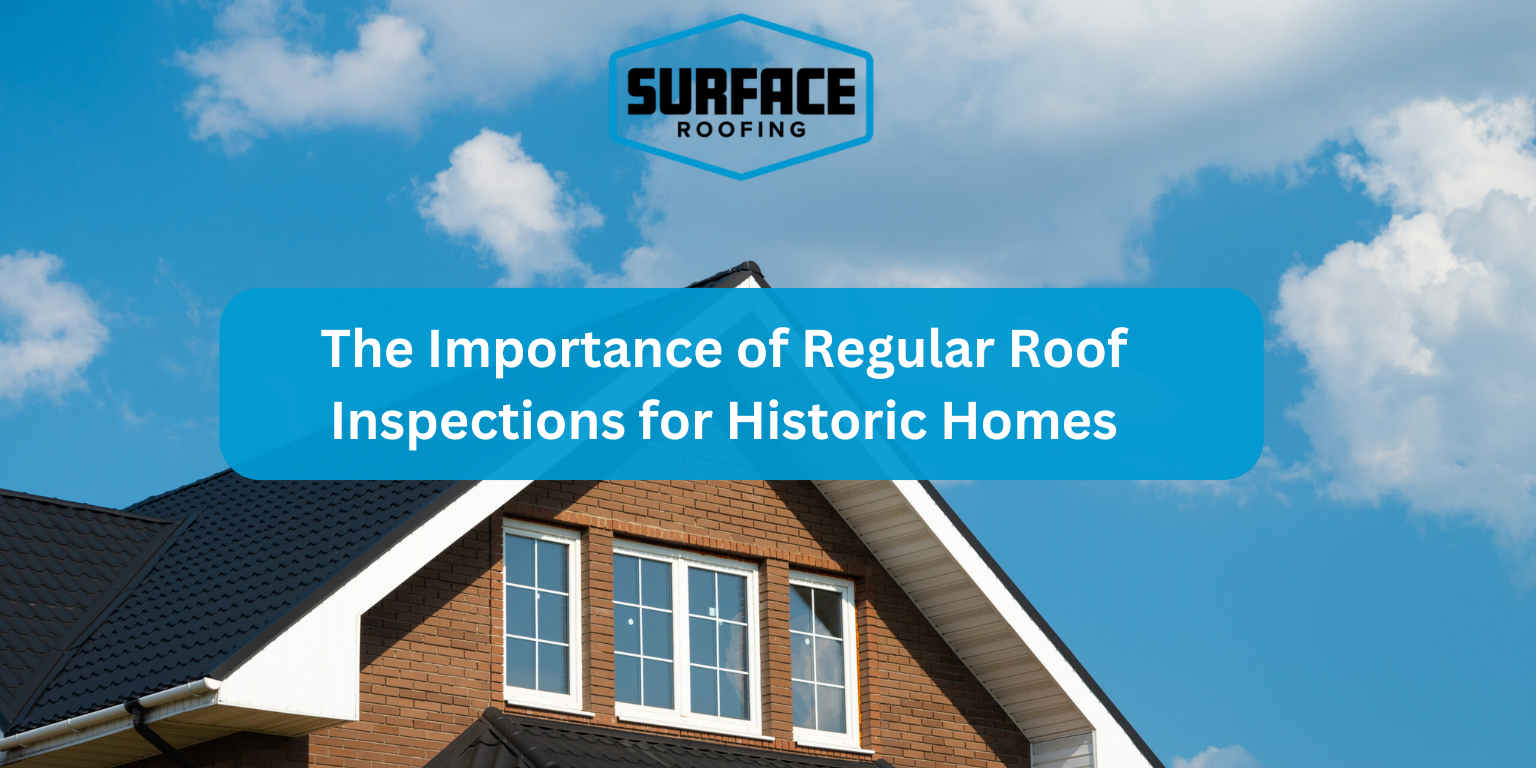Why Regular Roof Inspections Are Crucial for Historic Homes
Owning a historic home is a unique experience, but it comes with its challenges, particularly in maintaining the roof. Regular roof inspections are essential to preserving the integrity of your home. Older homes, especially those with unique or outdated roofing materials, require specialized attention to prevent costly roof repairs and ensure the structure’s longevity. Unlike modern homes, historic properties often feature construction techniques and materials that require a more delicate touch. Neglecting regular roof inspections can lead to significant problems, including the need for roof repair services or even a full roof replacement.
Common Issues Found During Roof Inspections
Regular roof inspections help identify potential issues before they escalate into major problems requiring extensive roof repairs or roof replacement. Here are some of the most common issues found during inspections of historic homes:
- Deteriorating Shingles: Over time, the roof shingles on a historic home can wear out, crack, or even go missing. This is a common issue that, if not addressed, can lead to water infiltration and the need for roof shingle replacement or even a more comprehensive roof repair.
- Water Damage: Inspections often reveal hidden water damage that hasn’t yet reached the home’s interior. Water damage can compromise the roof structure, leading to the necessity of residential roof repair or roof repair services.
- Structural Weaknesses: A thorough inspection can identify areas where the roof structure may be weakening, which is critical to address before it requires more extensive home roof repair.
How Often Should You Inspect Your Historic Roof?
It’s recommended to conduct a roof inspection at least twice a year—once in the spring and again in the fall. Additionally, inspections should follow any severe weather event, such as storms that could cause damage requiring a roofing insurance claim for storm damage. Regular inspections help homeowners avoid the unexpected costs associated with roof repair or even a full roof replacement.
DIY Inspections vs. Professional Roof Inspections
While homeowners can perform basic visual inspections, hiring a professional roof repair contractor with experience in historic roofing is crucial. Professionals can spot subtle signs of trouble that an untrained eye might miss. For instance, they can provide an accurate roof repair estimate or determine whether roof replacement services are necessary.
DIY Inspections: What to Look For
If you decide to perform a DIY inspection, here are a few things to watch for:
- Missing or Damaged Shingles: Look for any roof shingles that are cracked, curled, or missing, as these can lead to leaks and the need for roof repair or roof replacement.
- Sagging Rooflines: A sagging roofline is a sign of structural issues that may require immediate attention from a roof repair specialist.
- Debris Accumulation: Leaves and other debris can trap moisture on your roof, leading to rot or deterioration that might necessitate roof repair services.
Professional Inspections: What They Offer
A professional roof repair contractor will assess the overall condition of your roof, including:
- Detailed Condition Report: They provide a comprehensive report on the roof’s condition, offering a roof repair estimate if necessary.
- Identification of Hidden Issues: Professionals can detect hidden issues like water damage, which might not be visible during a DIY inspection but could lead to the need for roof repair or even roof replacement.
- Insurance Claims Assistance: If storm damage or other factors necessitate a roofing insurance claim, professionals can guide you through the roof insurance claim process and help with any needed roof repair services.
What to Expect During a Professional Roof Inspection
A professional inspection involves a detailed examination of all aspects of your roof. This includes:
- Shingle Condition: Assessing whether any roof shingles need to be replaced or if a full shingle roof replacement is warranted.
- Flashing and Gutter Systems: Inspecting flashing around chimneys and vents and checking the gutter installation services for blockages or wear.
- Roof Structure: Evaluating the roof’s structural integrity to determine if it can withstand another season or if it needs immediate roof repair or roof replacement.
The Cost of Neglecting Roof Inspections
Neglecting regular inspections can lead to expensive roof repair or even full roof replacement. In the worst cases, you may face significant structural damage, leading to costly interior roof replacement or extensive home roof repair. The expense of a roof replacement is far higher than that of regular maintenance and timely roof repairs.
FAQs
1. How long does a professional roof inspection take?
Typically, a thorough inspection will take a couple of hours, depending on the roof’s size and condition. The inspection may be longer if the roof is particularly old or if there are suspected issues that need closer examination, potentially leading to a roof repair estimate.
2. Can I inspect my historic roof myself?
Yes, you can perform a basic inspection yourself, but it’s highly recommended to hire a professional roof repair contractor at least once a year. They can identify issues that you might overlook, which could prevent the need for emergency roof repair services or a complete roof replacement.
3. How much does a professional roof inspection cost?
The cost can vary depending on the size of the roof and the extent of the inspection. However, many roof repair contractors offer free inspections or bundle the cost with other roof repair services.
Conclusion
Regular roof inspections are vital for the longevity and preservation of a historic home. By catching problems early, you can save money on roof repairs and avoid the more significant expense of a full roof replacement. Working with experienced professionals ensures that your historic property is well-maintained, preserving its beauty and structural integrity for future generations.
If you need further assistance or professional advice, consider reaching out to a roof repair contractor experienced in historic roofing services. They can provide the expertise needed to maintain the character and functionality of your home’s roof while using modern techniques and materials where appropriate.







